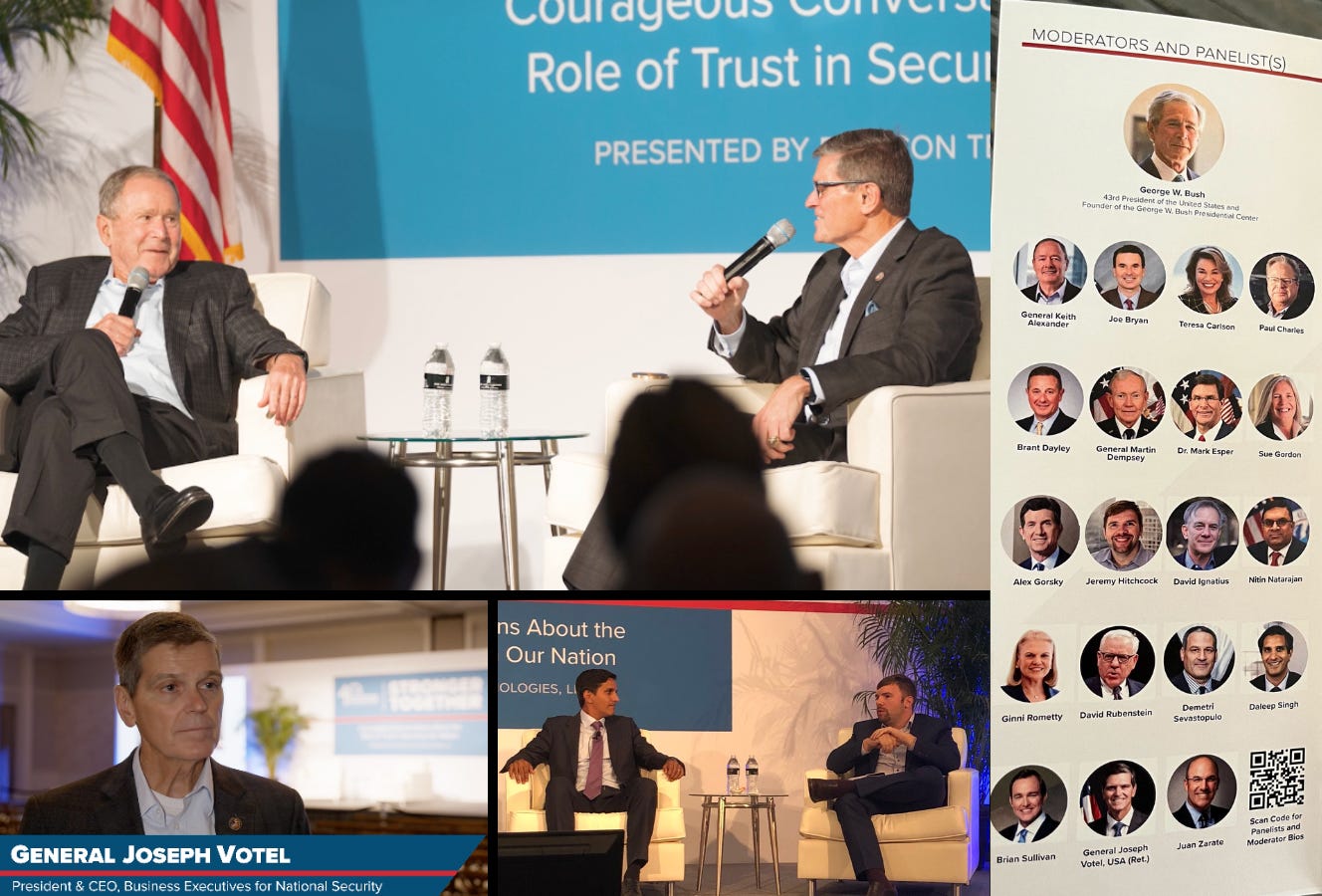The Future of Quantum Computing, BENS 40th Anniversary Forum, Fundings: Cold Quanta, Geosite, RunSafe Security
02 November 2022 - A Weekly Publication by New North Ventures
SOF 006: Host Brett Davis sits down with Laura Thomas to talk about the future of quantum computing. Laura Thomas is the Chief of Staff and Strategic Initiatives at quantum technology company, ColdQuanta. She is a former Central Intelligence Agency (CIA) case officer and Chief of Base serving 17 years in national security and leadership roles.
“If you think about the application space for quantum, there are three different major categories. There's quantum computing, quantum sensing which people don't talk about as much, and quantum communications.”
“It's going to be a question of what aspect of our lives does quantum not touch rather than what it does.”
“As a case officer, primarily you're going out and you're recruiting sources…You want a great source. You wanna make sure that the risk is worth the effort that you're putting in...I think that there's a lot of that same thinking [in deep tech], when you think about how to navigate new markets and it's also about being intellectually honest.”
Congratulations to ColdQuanta on their recent $110mm Series B raise.
BENS (Business Executives for National Security) held their annual Policy Forum and Awards Gala in Naples, FL on Oct 28. Panels covered topics ranging from new energy transition, weaponization of finance, and the critical importance of trust. The summit included 285 BENS members from all over. Panelists included Fortune 500 CEOs, policy experts, and former public sector leaders.
New North Ventures General Partner and BENS member Jeremy Hitchcock, “The US is great at recycling capital, but our success lies in our ability to organize people.” Click to tweet
Founded: 2007
Key People: Co-founded by Dr. Dana Anderson, Theodor Hänsch, Jakob Reichel Ph.D, and Rainer Kunz
Elevator Pitch: Quantum sensing technologies intended to avail the commercial availability of quantum technologies.
Funding: The company raised $110 million Series B round of funding November 1, 2022 led by LCP Quantum. Other investors included In-Q-Tel, Sumitomo Corporation of Americas, Breakthrough Victoria, BOKA Group Holdings I LP, and more.
Founded: 2018
Key People: Co-founded by Rachel Olney Ph.D and Daniel Lim Ph.D
Elevator Pitch: A data aggregation platform intended to provide geospatial information.
Funding: The company raised an undisclosed amount of venture funding from QBE Ventures on October 31, 2022.
Founded: 2016
Key People: Co-founded by Joseph Saunders, Simon Hartley and Peter Laitin.
Elevator Pitch: Vehicle cybersecurity company intended to cyber harden vulnerable systems and devices to render threats inert.
Funding: The company raised $1.43 million of seed funding In the form of convertible debt from CIT GAP Funds on October 18, 2022.
The Intelligence Community Doesn’t Warn About All Attacks Against the US Homeland. Why Not?
Foreign adversaries are increasingly attacking U.S. civilian infrastructure with cyber threats, theft of protected scientific information and intellectual property, and soliciting disinformation.
Intelligence agencies currently are only required to alert individuals if they are believed to be at risk of physical harm.
By modifying policy, the IC could provide intelligence as a service, address the increasing threat to non-military targets, and defend against foreign actors.
“The private sector is engaged in national security, whether the IC wants to acknowledge it or not.”
TSMC (Taiwan Semiconductor Manufacturing Company) is the world’s biggest chipmaker and accounts for over half of the global semiconductor market.
Implications for the global economy and supply chain for technology like smartphones and cars are grave given current US-China tensions, and China's standoff with Taiwan. Speculation in the event of a Chinese invasion of Taiwan could result in immediate and significant economic losses and recession.
The U.S. along with the rest of the world is incredibly reliant on TMSC for the production of chips for a range of capabilities, including most military systems. Losing access to chips would result in an inability to maintain existing weapon systems, upgrade, and build new ones which has signifiant national security implications.
Measures to prevent against this outcome have included the recent CHIPS act, the building of U.S. bases foundries, and TMSC’s expansion of a facility in Japan.
US weighs more China tech restrictions, targeting quantum computing and artificial intelligence
The Biden administration is exploring new export controls that would include investment in nascent quantum computing and artificial intelligence technologies.
Quantum computing has the potential to upend computer security by circumventing traditional encryption and enabling machines to solve problems beyond the capacity of the current generation of computers.
Economic actions taken by the current administration are in an effort to “maintain as large of a lead as possible” over adversaries and slow Chinese development of key technologies like quantum and AI.





